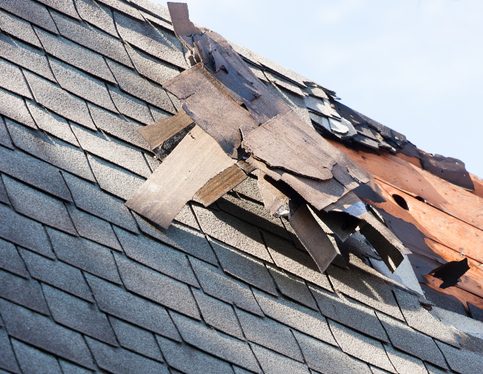![]() Phoenix, Arizona: 602-932-1623
Phoenix, Arizona: 602-932-1623
![]() Phoenix, Arizona: 602-833-1185
Phoenix, Arizona: 602-833-1185

August 14, 2020
Not everyone will have an idea of what to do when a storm comes rolling in to ruin your roof. This lack of preparation is the reason why many home and business owners will have problems with their roofs. Even if a storm doesn’t do visible damage to your roof, you can expect that without the right preparation, it has done some sort of damage. This damage will eventually add up and shorten the lifespan of your roof. We’ve put together a great list of things you can do to prevent storm damage so you can make sure your roof will last as long as it should.
The first thing that comes to mind when you hear “prevention” is the maintenance for your roof. Without proper maintenance, you can’t expect your roof to completely negate storm damage. There are a large number of things you can do to make sure that you’re doing proper maintenance on your roof. However, you should know that every roof is different and what might work for a tile roof, may not necessarily work for a metal roof.
Leaks and holes are always an issue for roofs, regardless of whether there is an incoming storm or not. However, they have a much larger impact if they’re present when a storm hits. Leaks and holes in your roof grow over time and even more so during strong weather. This is why you should always take the time to look for them and have them fixed before an emergency happens.
Your gutters and downspouts are some of your roof’s best tools to divert water safely off of it. However, if they are blocked by debris and foliage, these gutters and downspouts are as useful as a lawn ornament. Make sure you regularly clear out the debris from them so that they can do their job properly and prevent water from pooling on and in your roof.
Storms usually bring two things when they hit your area: heavy rain and strong wind. Both are a problem for your roof because of how they can open up leaks, and rip off bits and pieces off of it. However, these two things can also cause damage by other means. They can tear branches off of nearby trees and cause them to crash into your roof. This is why you should prioritize minimizing the risk by removing or at least trimming these trees so that your roof doesn’t take storm damage.
Protecting your roof from storm damage is no easy task. However, with the right knowledge and tools, you’ll be able to make sure you keep your roof protected from these storms!